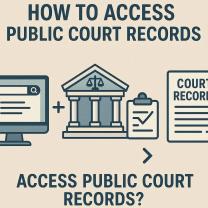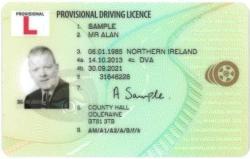What are the pros and cons of fingerprinting?
Fingerprinting, a biometric identification method, has both advantages and disadvantages. Here are the pros and cons of fingerprinting:
Pros of Fingerprinting:
Unique Identification:
- Fingerprints are unique to each individual, making them a highly reliable method of identification. This uniqueness enhances security and accuracy.
Difficult to Forge:
- Fingerprint patterns are intricate and difficult to duplicate, reducing the risk of fraud or identity theft.
Longevity:
- Fingerprints remain largely unchanged throughout a person's lifetime, making them a stable and consistent form of identification.
Versatility:
- Fingerprinting can be used for various applications, including criminal identification, access control (e.g., unlocking smartphones), and identity verification for government services and financial transactions.
Speed and Efficiency:
- Fingerprint scanning is quick and efficient, allowing for rapid identification and authentication.
Non-Invasive:
- Fingerprinting is non-invasive and does not require the collection of bodily fluids or invasive procedures, which can be a concern in other biometric methods.
Cons of Fingerprinting:
Privacy Concerns:
- Collecting and storing fingerprints can raise privacy concerns, as they are sensitive biometric data that, if mishandled, could lead to identity theft or misuse.
Accuracy May Vary:
- While fingerprints are generally reliable, the accuracy of fingerprinting can be affected by factors such as the quality of the fingerprint image, skin conditions, or injuries.
False Positives and Negatives:
- Fingerprint recognition systems can sometimes produce false positives (misidentification) or false negatives (failure to identify the correct person), though these errors are relatively rare.
Storage and Security:
- Storing fingerprint data securely is crucial, and any breach can have serious consequences. This requires robust security measures to protect against hacking and unauthorized access.
Cost of Implementation:
- Implementing fingerprinting systems, especially at a large scale, can be costly due to the need for specialized hardware and software.
Cultural and Legal Factors:
- Fingerprinting may face resistance in some cultures or legal systems due to concerns about individual rights and civil liberties.
Lack of Revocability:
- Unlike passwords or PINs, fingerprints cannot be easily changed or reset. Once compromised, they may remain a security risk for a lifetime.
Potential for Bias:
- Some fingerprint recognition algorithms have been criticized for potential bias, which could lead to disparities in accuracy based on factors like race or gender.
Environmental Factors:
- Environmental factors such as dirt, moisture, or damage to the fingertips can affect the quality of fingerprint scans, potentially leading to recognition failures.
Overall, fingerprinting has proven to be a valuable and widely accepted biometric identification method. However, the responsible and ethical use of fingerprint data, along with robust security measures, is essential to address potential privacy and security concerns.
Pros and Cons of Fingerprinting: What You Should Know
Fingerprinting is a biometric identification method that uses the unique patterns of ridges and valleys on a person's fingertips to identify them. Fingerprinting has been used for centuries to identify criminals and victims of crimes, but it is also becoming increasingly common in other areas, such as border security, employment screening, and access control.
Pros of fingerprinting:
- Accuracy: Fingerprinting is one of the most accurate biometric identification methods available.
- Uniqueness: Fingerprints are unique to each individual, even identical twins.
- Permanence: Fingerprints remain relatively unchanged throughout a person's life.
- Relatively non-invasive: Fingerprinting is a relatively non-invasive procedure that does not require any surgery or injections.
- Cost-effective: Fingerprinting technology is relatively cost-effective, making it accessible to a wide range of organizations.
Cons of fingerprinting:
- Privacy concerns: Some people have privacy concerns about the use of fingerprinting, as it can be used to track people's movements and activities.
- False positives and false negatives: Fingerprinting technology is not perfect, and there is a small risk of false positives and false negatives.
- Potential for misuse: Fingerprinting technology could be misused by governments or organizations to track and control individuals.
The Fingerprinting Dilemma: Weighing the Advantages and Disadvantages
The decision of whether or not to use fingerprinting should be made on a case-by-case basis, taking into account the specific risks and benefits involved. In some cases, the benefits of fingerprinting may outweigh the risks, such as in law enforcement applications. However, in other cases, the risks of fingerprinting may outweigh the benefits, such as in employment screening or access control applications.
Making Informed Choices: Understanding the Pros and Cons of Fingerprinting
It is important to understand the pros and cons of fingerprinting before making a decision about whether or not to use it. By weighing the advantages and disadvantages carefully, you can make an informed decision about whether or not fingerprinting is the right solution for your needs.
Here are some questions to consider when making your decision:
- What are the risks and benefits of using fingerprinting in this specific situation?
- How will the fingerprint data be used and protected?
- Who will have access to the fingerprint data?
- What are the alternatives to fingerprinting?
By carefully considering these questions, you can make an informed decision about whether or not fingerprinting is the right choice for you.











